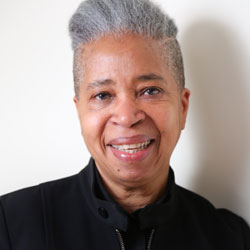From under the sea a liquid hand would turn a liquid page each eight seconds. This page would make its way to the shore and make its way back. Sometimes pens would wash up onto the beach, long stem-like organic styli. We called them pens; what tree or plant or reef they came from we did not know. But some days the beach at Guaya would be full of these styli just as some nights the beach would be full of blue crabs. Which reminds me now of García Márquez’s old man with wings but didn’t then as I did not know García Márquez then and our blue crabs had nothing to do with him; it is only now that the crabs in his story have overwhelmed my memory. It is only now that my blue night crabs have overwhelmed his story. Anyway we would take these pens and sign our names, and the names of those we loved, along the length of the beach. Of course these names rubbed out quickly and as fast as we could write them the surf consumed them. And later I learned those pens were Rhizophora mangle propagules.
What does this have to do with Borges? Nothing at all. I walked into the library and it was raining rain and my grandfather’s logs were there, and the wooden window was open. As soon as I opened the door, down the white steps came the deluge. If I could not read I would have drowned.
Now you are sounding like me, the clerk says. I am you, the author says.
Notes on the Poem
In the 2019 Griffin Poetry Prize shortlisted work The Blue Clerk, Dionne Brand examines in detail the act of writing through an extended and fascinating conversation between a poet (the author) and a clerk. As they share and dissect myriad observations, what do we as readers glean? The clerk is, in effect, the poet's functionary for cataloguing the observations and research that feed into and inform the poet's poetry. As such, the clerk covers a stunningly wide range of subject matter and approaches to the world around us all. The 2019 Griffin Poetry Prize judges capture that gorgeous immensity with crisp perfection in their citation:“Dionne Brand’s The Blue Clerk is many things at once: a book-length ars poetica; an act of memory and reconfiguration; an extended meditation (one that moves at times directly, at others by a kind of philosophical osmosis) touching on the realms of history, politics, race and gender; an internal, consciously curated and interrogated dialogue that manages to create a space for all of these. Expansive, beautifully written, structurally compelling, and above all moving, The Blue Clerk is a book to be read (and re-read), not just for the pleasures of its language, but for the breadth of its vision, and the capaciousness of its thinking.”With all that to potentially take in with each poem - and to potentially be intimidated by, we might add - it's wonderful that "the pleasures of its language" is enough at many junctures. This particular section opens so welcomingly ... "From under the sea a liquid hand would turn a liquid page each eight seconds. This page would make its way to the shore and make its way back." ... that we know it's more than acceptable to just relish the gorgeous words and dream-like imagery. We can circle back later (because, as the judges point out, we will re-read this) to find out that Rhizophora mangle propagules are both an invasive plant species and are also part of habitats for diverse ecosystems, which is intriguing information with which to emerge from this beautiful dream concocted by a clerk and a poet.
